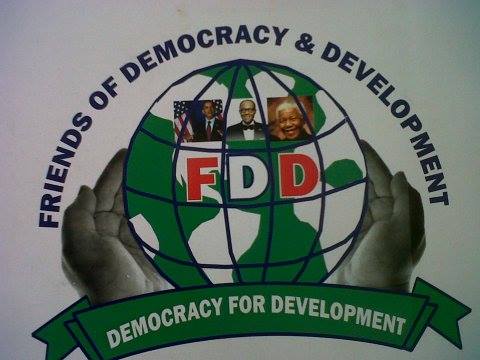
Building adaptability and capacity against climate change induced vulnerability in African Cities: the example of postcolonial Ibadan
Through the establishing Urban and Peri‐urban Agriculture and Forestry (UPAF) as a major strategy to combat dangers of climate change, Friends of Democracy and Development builds adaptive capacity from the local community and government in the 11 Local Government Areas that make up Ibadan.


Overview of the project
This research’s project apart from the central objective of building affordable adaptive capacity in Ibadan in coping with the climate change induced vulnerability through the initiation and implementation of adaptation policies, combating poverty and enhancing economic opportunities without destroying the environment is set out to achieve the following specific objectives : Inaugurate Urban and Peri‐urban Agriculture and Forestry (UPAF) as a major strategy to combat dangers of climate change in the 11 Local Government Areas that make up Ibadan; Initiate immediate actions towards adaptation in our local communities; Strengthen institutions; encourage Public Private Partnership in the provision of financial assistance in building climate adaptation capacity; increase awareness and knowledge through advocacy and education; Create conditions to enable adaptation; Integrate adaptation with community development; Establish strong institutional /organisational links through national and international networking; Design policy for environmental and natural resources management; Create innovative mitigation and adaptation strategies for sustainable community development; initiate programmes to promote synergy between government and the local community towards the adequate protection of the environment and promotion of the economic well being of the people.
Build affordable adaptive capacity in Ibadan in coping with the climate change induced vulnerability through the initiation and implementation of adaptation policies, combating poverty and enhancing economic opportunities without destroying the environment.
Ongoing research
7/20/2019
Many different people are going to be interviewed: political, social and economic groups such as Civil servants, private sector workers, students, artisans, farmers, women, apprentices and the unemploye. Scientists, Economists, Development Experts; Environmental/Health Officers, Sanitary inspectors, Local, State, and Federal government officials, traditional chiefs, community leaders, NGOs and professionals.
Gathering of oral evidence through direct/personal interviews. Two sets of structured questions will be used. The first set will be for selected households to elicit information from the people about their living conditions, the environmental situation and demographic characteristics, political awareness, the role of government in urban environmental management and the link with development; their perception on environmental hazards and personal hygiene; relationship between Environment and Economy; what constitute urban problems; their potentials to improve their living conditions; how they believe environmental issues should handled and how poverty can be effectively alleviated especially in the urban centers.
Members contribution. We also hope to raise money from our proposed partners and funders (local and International)
organisation

Friends of Democracy and Development started as a forum of concerned individuals and patriotic Nigerians with deep interest in the enthronement of astute leadership capable of entrenching good governance, growth and sustainable development in Oyo State in particular and Nigeria as a whole.Our main objectives include: Propagation of Environmental Sustainability Promotion of volunteerism;Youth Empowerment (through periodic trainings, workshops, seminars, search for educationalscholarship/internship/job opportunities both home and abroad for members etc); Research promotion; Promoting economic emancipation (by encouraging members to be engaging in serious agric-business and small and medium enterprise in order to be able benefit the agricultural and SMEs policies of the government at all levels)


